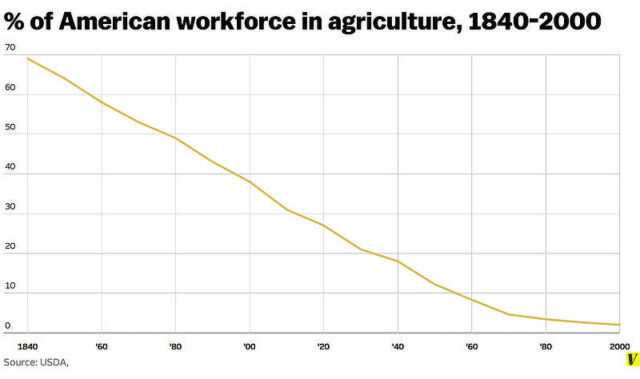It is certainly an exciting time to be alive.
It seems every month a new (extremely long) essay from a rationalist drops about how AI will immanentize the eschaton. Fast take-off, recursive self-improvement, one-world government and the end of humanity or the beginning of the new humanity depending on who you ask. But I’m generally not that interested in secular religions.
I’m much more interested in the engineering - in the application of the technology we have today and the technology we may have 12 months from now in the pursuit of the increase of human flourishing.
I’ve worked in applied machine learning now for close to a decade. I’ve watched Elon promise full self driving (FSD) for 12 years. I remember when Kyle Vogt drove Sam Altman down 101 in a self-driving car to YC Demo Day, and soon sold Cruise to GM for a staggering 1 billion dollars. I also remember when GM shuttered the project this year after spending $10B. The gap between magical demo and robust production and reliable software in AI has always been vast.
Developing useful AI systems continues to be much more like alchemy than it is like engineering. Alchemy is fun, it’s… magical! Until you need the incantation to work every time.
Consider this famous XKCD comic publish May 2017 (8 years ago) - sound familiar?
Some things have changed in the past 8 years however. In the past year - this has become 1 line of code.
What is AI
AI is not a deus ex machina, it is not a god out of the machine. It is not a panacea to all of humanity’s problems, nor will it be usher in the apocalypse.
AI is a tool. A very useful tool.
What can this tool do?
AI processes unstructured information in a common sense way.
This is quite useful as traditional software is not capable of processing unstructured information and certainly not in a common sense way.
While the domain of traditional software has typically be constrained to a digital world, one of structured, strongly typed data - now AI software can increasingly address problems and automations in the real world - one where unstructured data abounds.
Unstructured data already outnumbers structured data 10 to 1 in enterprises today. I wouldn’t be surprised if that is 1,000x+ in less than 10 years.
The real world is a valuable place to solve problems - but the real world is also incredibly messy. The edge cases in building reliable AI software are likely 10-100x that of traditional software. Most AI systems get mugged by reality.
Building AI systems today is like building traditional software where you have no stack-trace, no IDE, and can only test in production. Finding problems is difficult, and understanding their causes is impossible. Guess and check, ad infinitum.
AI’s effect on the world
I say this without hyperbole - I think AI will have a similar or greater effect on the economy as the industrial revolution.
The industrial revolution gave humanity massive leverage and efficiencies in the physical world. Tasks that used to take hundreds or thousands of humans and animals could now be done by a few humans and a fleet of machines. Consider the percentage of the American workforce working in agriculture:
The leverage of machine labor, coupled with the falling price of energy to operate them, enabled humanity to rise above the Hobbesian reality of life as nasty, brutish and short. Small numbers of humans now generate and distribute incredibly inexpensive energy.
While mass manufacturing and technological innovation has had a massive deflationary effect on the costs of many goods in the past 20 years - services have taken the opposite direction. Typically this is chalked up to regulatory capture which I am sure plays a large factor, but I think all prices are ultimately a manifestation of supply and demand. When people get rich, they buy more education, food, and healthcare. There is increasing demand for few skilled humans.
Though in the short term not all individuals stand to benefit from the vast reduction in the cost of services, humanity does. The bull case for AI is reversing this inflationary trend. AI will multiply humanity’s leverage. AI will make products more like services (highly consultative and personalized) and services more like products (available 24/7 for pennies).
Energy too cheap to meter and intelligence too cheap to meter are on the horizon - something I could not have guessed when I wrote this in 2016:
We need near-free and sustainable electricity. Why? This will make resource extraction, processing, shipping, and recycling near-free. Which will mean basic products of life (those that don't compete on brand) be near free. Which means all people - even with the most meager income can live near-free. Food, water, toiletries, housing, waste processing, sleep, clean air, heating, cooling.
→ near-free energy - little transportation loss, efficient product, sustainable and clean energy, cheap financing or other
We need near-free basic services. Health-care, policing, fire, defense, education, transportation, and most importantly labor.
→ near-free intelligence through AI
It is entirely possible that within 50 years, we can live in a world where the poorest people on earth have better access to healthcare, education, legal services, and financial services than billionaires have today. AI will increase the rate of 0-1 discovery and lower the cost of 1-n distribution.
None of this requires super-intelligence. All of this is probably already possible with the models we have today or will have within a year. Even if we are entering the logarithmic part of the S-curve for raw transformer capabilities - that capability overhang is already immense. The future is already here - it’s just not evenly distributed yet.
Part 2 coming soon








